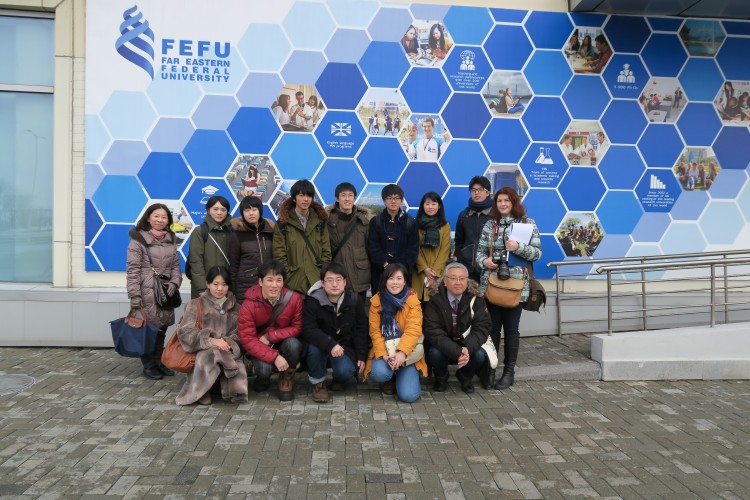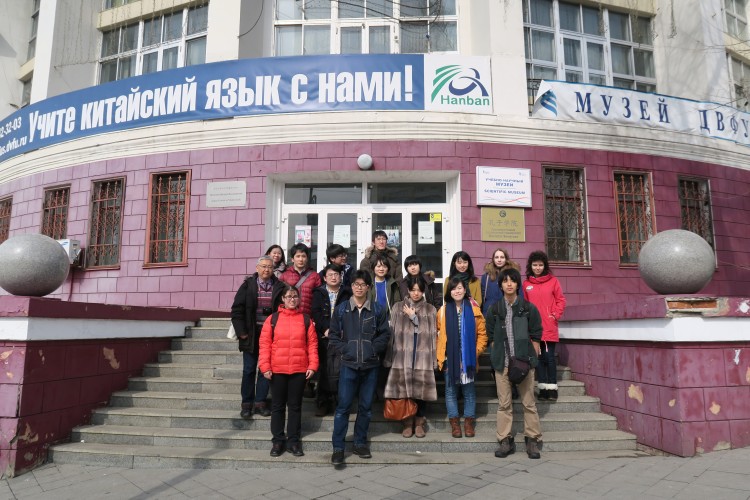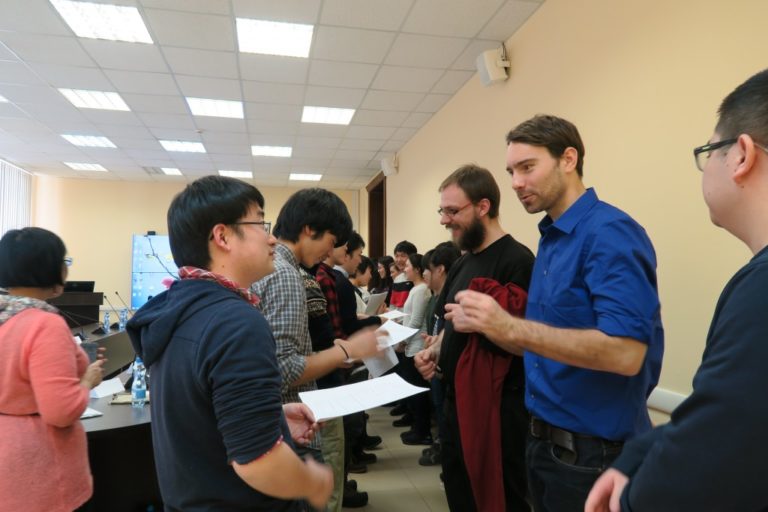Experiences in Russia by Prep Subjects
Seiya SHUDO
Graduate School of Information Science and Technology,Hokkaido University
| Major | Dividion of Media and Network Technologies |
|---|---|
| Course | Master Year 1 |
| (at the time of dispatch) | Fuculty of Engineering, Department of Electronics and Information Engeeniring [Courese of Media and Network Technologies] 4th year |
| Distination | Far Eastern Federal University(Vladivostok) North Eastern Federal University(Yakutsuk) |
| Period of dispatch | March 5th~13th, 2016 |
About contents of the dispatch program
This dispatch program was held as Prep Subjects of RJE3 Program which Russian Universities and Hokkaido University were intended to cooperate in five areas of environment, cultural diversity, soil and production, regional resource development and disaster management in the Far East and the Arctic Circle. The program in Vladivostok was intended to understand Russia as a country through Russian culture and history and art, etc., and I experienced interaction with local students, lessons about expertise and tours of the academic facilities in Yakutsk.
About learning outcomes
In Vladivostok, I visited an art museum and scientific museums. I also enjoyed appreciation of ballet. I realized that art was close to the life of people in Russia than in Japan. In addition, I was able to feel the connection between Russia and Japan from the tour of tracing the history of the old Japanese town in Vladivostok.
In Yakutsk, I learned the history and culture of Sakha Republic through the lecture. I felt that Sakha Republic had mixed diversity in language, religion, race, and ethnicity. I visited the precious metal (such as diamonds and gold) museum, and I recognized that Russia was rich in resources. We were able to see permafrost and the life in cold regions.
Therefore, I think that the technology of environmental improvement and land development in Hokkaido can be applied in Russia.
About experiences abroad
I had Visited Russia once in European destinations before joining this program, but it was my first time to visit Russia in Asian destinations.
I felt more effects of Asia than that of Moscow in Vladivostok. From the traces of history such as Japanese streets, Chinatown, and Korean Town, I felt that the connection with Far Eastern countries, where geographically in close location, was strong in Vladivostok. I felt that it was interesting that the path from Siberia railway station in Vladivostok to Moscow was a means of heading to Europe for Asian people.
Yakutsk was different from Vladivostok, Yakut people with Asian appearance were the majority rather than white Russian people. In the lecture in North Eastern Federal University, having heard that Yakut people, whose environment and language, even religion were different from those of others, took themselves as Russian people, I was convinced that Russian federation was “one Russia” even their environment was different from Japan which was said that Japanese people were majority.
The impact on the future career
My understanding of Russia as a country has been deepened from this dispatch. Not only I visited Russia, but also I had a valuable opportunity to meet with Japanese person working in Russia during this dispatch. Having heard that Russia was in the process of being pioneered by a new industry to replace the current resource-dependent industry, I thought that taking advantage of the areas of RJE3 was desirable.
In the future career, I would like to experience a little more of the cultural diversity of Russia.
My research field is related to language processing and artificial intelligence. I started to have an interest in Russian-Japanese machine translation through those experiences. I would like to consider my future employment in this area.
Other
I have a strong interest in the fact that people can have the same identity even they are in a different environment.
There were many opportunities to speak in English than in Russian in this study tour. It was interesting that English was acting as an international language because communication in English rather than in Japanese or in Russian was required when I talked with Russian people.



